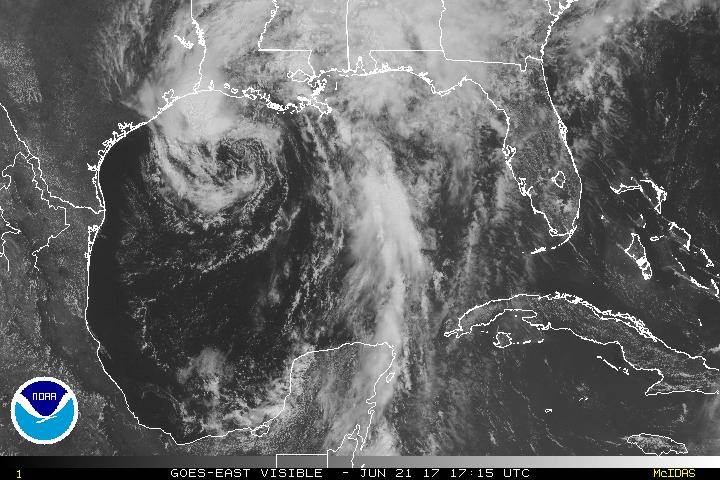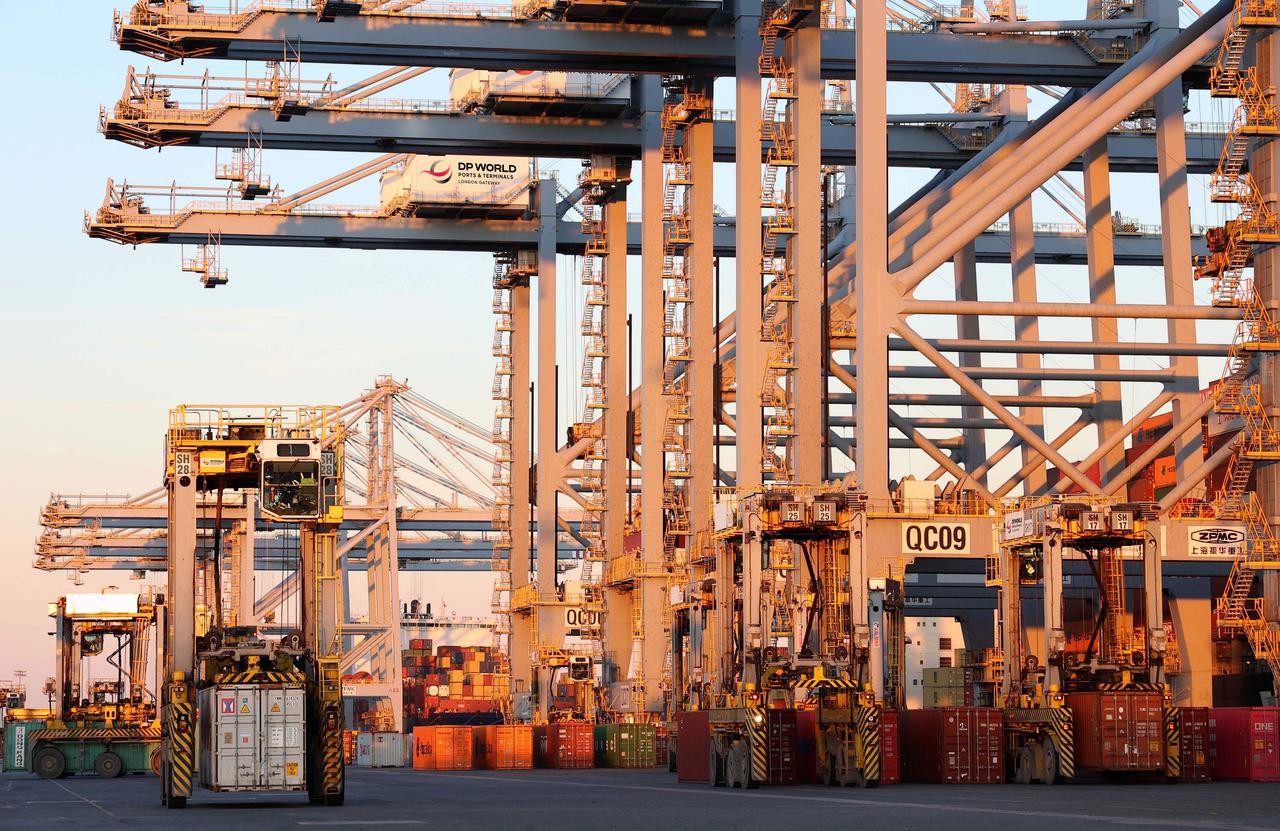TS Cindy pictured June 21, 2017. Image: NOAA
By Brian K. Sullivan (Bloomberg) — Tropical Storm Cindy, which has already shut energy production in the Gulf of Mexico, disrupted shipping and forced workers off oil and gas platforms, is now bearing down on the Texas-Louisiana coastline.
With top winds of 50 miles (80 kilometers) an hour, down from 60 mph earlier, the system is moving northwest toward the coast about 160 miles southeast of Galveston, Texas, the U.S. National Hurricane Center said in a 2 p.m. New York time advisory.
The storm has already shut one-sixth of the oil production in the Gulf of Mexico, halted vessel unloadings at a major oil-import terminal and triggered a force majeure on a system that collects natural gas from offshore platforms. Once Cindy makes landfall, it could threaten to disrupt energy operations in a region that accounts for about half of the nation’s oil-refining capacity.
“The biggest impact would be on shipping activity which will remain suspended through Friday,” said Andy Lipow, president of Lipow Oil Associates in Houston. “Storm sets off high winds and waves that will impact ability of ships to go through open water.”
Cindy probably won’t have much impact on natural gas production because so much has shifted to other parts of the country, said Stephen Schork, president of the Schork Group Inc. in Villanova, Pennsylvania.
“If this was 10 years ago, natural gas prices would probably be 3 dollars higher than they are,” Schork said. “What is interesting is it still has potential impact on crude oil.”
Gulf rigs and platforms account for about 17 percent of U.S. crude oil output and 4.1 percent of gas production. About 45 percent of petroleum refining capacity and 51 percent of gas processing is along the coastline.
Offloading Suspended
Vessel offloading at the Louisiana Offshore Oil Port marine terminal was suspended. The rest of the company’s operations, including deliveries from its Clovelly, Louisiana, hub, were expected to continue, according to the company’s website.
While pilots have stopped guiding ships into Sabine Pass, which also funnels traffic to the ports of Beaumont and Port Arthur in Texas, the Coast Guard has decided to keep the Houston Ship Channel open. Sabine Pass is also the site of the only active liquefied natural gas export terminal in the lower 48 states.
Enbridge Inc. evacuated nonessential workers from some platforms in the Gulf. Royal Dutch Shell Plc suspended “some well operations” in the region, though production is unaffected, according to company spokesman Curtis Smith. BP Plc and Anadarko Petroleum Corp. also evacuated nonessential personnel. BHP Billiton Ltd suspended nonessential operations and “demobilized” nonessential workers.
Destin Pipeline Company LLC declared force majeure on Tuesday, saying in a notice to shippers that it’s unable to provide gas transportation service from all of its offshore receipt points because of the storm.
It’s been a year since the U.S. Gulf Coast took a storm hit. Tropical Storm Colin and Hurricane Hermine struck Florida last year. The last storm to reach the western Gulf was Tropical Storm Bill in June 2015.
Cindy could bring 6 to 9 inches (15 to 23 centimeters) of rain across parts of Louisiana, Mississippi, Alabama and Florida, with some areas getting as much as 12 inches, the center said.
© 2017 Bloomberg L.P

 Join The Club
Join The Club











